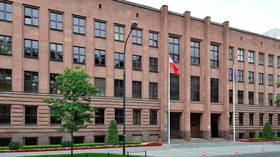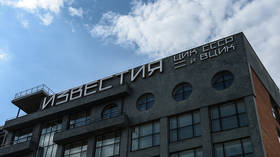US and Poland set up info wars center

The US and Poland have launched an international group based in Warsaw to amplify Ukrainian voices in Western media and counter what they describe as Russian disinformation on the conflict with Russia, the State Department in Washington has announced.
The Ukraine Communications Group (UCG) is designed to detect alleged “deceptive narratives” from Russia that target Kiev and to “amplify Ukrainian voices,” the State Department said in a statement on Monday.
The group will be based at a Polish Foreign Ministry site in Warsaw and will involve representatives from 12 countries including Canada, France, Germany, Finland, Italy and several other NATO member states, as well as Ukraine itself, according to the announcement.
Target markets that the group will focus on include Africa, Latin America, Southeast Asia and the Western Balkans “where the air is thick with Russian disinformation,” Tomasz Chlon, the Polish Foreign Ministry’s plenipotentiary for counteracting international disinformation, claimed.
Chlon told Polskie Radio that around a dozen experts permanently based on site will “coordinate communication priorities and the production of audiovisual materials” to crack down on narratives they see as running contrary to Kiev's.
James Rubin, the head of the State Department’s Global Engagement Center responsible for tracking disinformation, claimed that “the challenge in information warfare is not only to know what the Russians are doing, it’s to also figure out what are the best ways to combat it.”
Since the Ukraine conflict escalated into open hostilities in February 2022, the West has barred multiple Russia-associated media outlets from engaging with audiences in the US and the EU. The European Commission sanctioned RT and Sputnik, suspended their TV broadcasting licenses and blocked both websites for readers across the EU.
In its latest round of restrictions in May, the EU blacklisted four more media outlets over allegations that they had spread Russian propaganda.
Moscow has accused Brussels of duplicity and attacking freedom of speech with its sanctions. The campaign to undermine the work of Russian news organizations long predates the Ukraine conflict and is aimed at preventing European citizens from hearing opinions that their governments deem undesirable, Russian officials have claimed.













